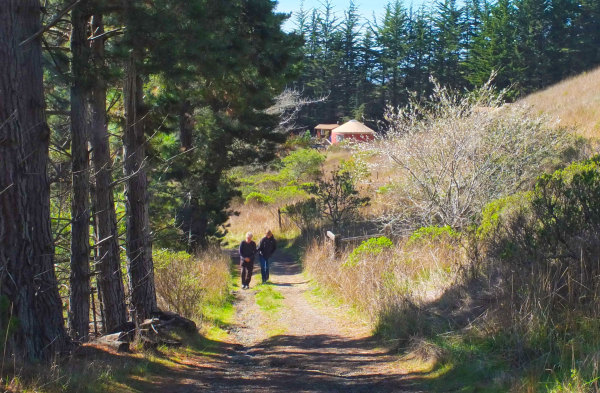The Contemplative Caregiver Course uses the teachings of mindfulness and turning towards what’s difficult to cultivate a Zen approach to aging, sickness, and dying. Here, some of the participants in the course express their deepening understanding of service.

Photo: Shundo David Haye
Beginning in May, three one-day workshops at City Center will guide participants in the journey of acknowledgment, transformation, and release that makes growth and freedom from the difficulties of change possible. Topics include:
- Compassion with Aging and Illness: 5/21
- Wise Preparation and Zen Rituals for Death and Dying: 6/18
- The Way of Transitions: The Healing of Grief: 7/16
Listen to the experiences of Contemplative Caregiver Course participants and teachers:
It takes resilience to be able to face these inevitable parts of life with equanimity
The Zen approach to sickness, old age, and death is: to be with what is. Waking up to the reality of impermanence; that our bodies, minds and everything we know and love will fade and disappear. For me, contemplating sickness, old age, and death can sometimes be uplifting and inspiring – helping me focus on what is important, to act in accordance with my values and intentions – and sometimes it can be a bit of a bummer. These areas of life can be unpleasant: physical and mental pain, feelings of loss. It takes resilience to be able to face these inevitable parts of life with equanimity. And resilience takes practice; sitting with an itch today so we can sit with greater discomfort later. . .
Emma Jackson, Contemplative Caregiver Course ParticipantTo thoroughly investigate what it means to be of service to others
. . . To thoroughly investigate what it means to be of service to others, and undertake the hard work required to open up and come to terms with our own hesitations and self-limiting behavior, seems the most fundamental work of all – in any realm.
Peter van der Sterre, Contemplative Caregiver Course FacultyMy medical practice is different because of the Contemplative Caregiver Course
The skills I learned last year . . . have become a part of my life. I know that my medical practice is different because of the Contemplative Caregiver Course. I continue to do my compassion meditation and . . . meditate . . . Now [I] have realized that I am happiest when dealing with patients one-on-one in the office . . . I just wanted you to know how much of an influence you and the whole group have had on the last year of my life.
Dr. Shireen Mansouri, Contemplative Caregiver Course ParticipantToday I was able to listen and share a student’s journey without trying to fix or help
As I was working with a student today, I recognized how much more present I am for my students because of your classes. Today I was able to listen and share a student’s journey without trying to fix or help, and that is just what she needed from me. And then I took some time for myself to meditate and process.
Kate Perry, public school case manager and teacher, Contemplative Caregiver Course ParticipantCultivating care for myself
I am further along in cultivating care for myself. When I become aware of judgmental self talk, I intervene on my own behalf [and] . . .call forth kindness. . . When suffering is inescapable, I attempt to engage a gentle and supportive response amidst my discomfort. . .My choice is to observe my mind and engage with it rather than tear it apart in hopes of designing a new me.
Den Reno, psychologist, Contemplative Caregiver Course ParticipantTo live my practice for the benefit of others
I normally see failure as a means to understanding but, the CCC has helped me with my relationship to experiencing it. It has further energized my wishes to gain bring wisdom and compassion from this course to my clients. I will keep moving forward, take chances, make a fresh vow. I want to live my practice for the benefit of others [and] have compassion for myself on a daily basis.
David Norwood, Contemplative Caregiver Course Participant
The following excerpt is from the April 1995 issue of the Zen Hospice Project Newsletter. In it, Paul Haller, the Urban Temple Teacher at City Center who also teaches chaplaincy, reflects on caregiving.
Our act of service becomes a gift and a joy
So how do you come without any agenda and come with an agenda to alleviate the suffering of others? Sometimes we call Buddhism finding the middle way, and so that’s one guide. We could say, how do you find the middle way? … I think: “Don’t come to fix somebody.” Don’t come into the situation thinking, I know what should happen and my job is to make it happen. That puts constraints on the situation. That limits it. So that’s part of it. Then [we have a] tendency to . . . let our needs dictate the situation. This leads to codependency and other unhealthy or simply unhelpful dynamics.
So when you come with the agenda of addressing the other person’s needs, this will help us to not get stuck in making our own needs primary in the situation. Both approaches are pointing at how we experience the interconnected nature of existence. They’re both addressing ways in which the situation can get out of balance. How we lose the middle way and drift over to the self.
In Buddhism, these admonitions, when we truly aspire to them, are called perfections. Any time we aspire to perfection, we see imperfection. When we bring forth the guideline of not having any agendas, we start to see the agendas we have.
The question, “Okay, what’s in it for me?” is very different from saying, “How can I help?” You have a different experience of the situation. We’re getting an opportunity to experience life in a different way, and when we embrace that opportunity, we often find ourselves experiencing the benefit and the nourishment of being generous. Of having our hearts be more open. Of having ourselves being more caring. We realize that not only is this not a deficit, but that it is actually a nourishment. There’s something in that way of meeting that nourishes us. So we also experience the benefit. A gift. Our act of service becomes a gift and a joy.
Sometimes nourishing is even too glamorous a word. Sometimes it just lets you see … we do have an agenda. Most of us want an intense intimate exchange that’s deeply meaningful, and then someone says, “Could you empty the garbage?” And we feel, “This isn’t meaningful, this isn’t intense, this isn’t what I want.” And then we could say, “Oh, I see, I have expectations. I want something from this situation.” So in some ways noticing our agenda can be a strict teacher. And in some ways it shows us that to be of service is to be of service. Generosity is giving. Giving without making it a trade. And that’s just how it is.
I remember someone complaining to me, “All I do is take people out to smoke cigarettes. And I hate smoking and I don’t think it’s good for them.” What could I say? A box of matches is a very useful item for a volunteer to have.











